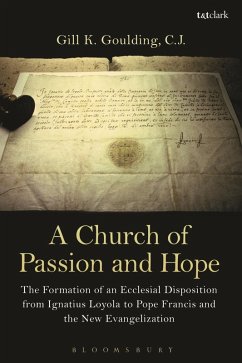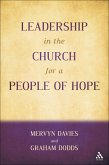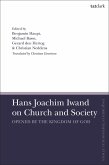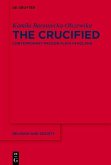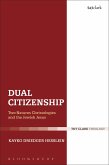Jesuits have contributed to the life and theological development of the Church for many generations - culminating in Pope Francis, the first Jesuit Pope. Ignatius Loyola called his men and all those inspired by the Ignatian Spiritual Exercises to a certain ecclesial disposition a way of thinking, judging and feeling with the Church.
Gill Goulding discusses the key texts from St Ignatius' life and work to identify the Ignatian ecclesial disposition that is centered on Christ. It is fuelled by a Trinitarian horizon, and with a clear emphasis on the dignity of every human person. Golding introduces and examines key historical figures such as St Pierre Favre and Mary Ward; as well as two of the major 20th century theologians - Henri de Lubac and Avery Dulles. Finally, Goulding highlights the Ignatian ecclesial disposition in the highest authority of the contemporary Roman Catholic Church, in the background to the pontificates of John Paul II, Benedict XVI and Francis, focusing on the centrality of Christ and the work of the New Evangelization.
This book raises the key questions of the relationship between Christ and the Church as the body of Christ. It indicates the importance of maintaining a Trinitarian horizon in theological vision and raises the pertinent if difficult question of the meaning of Christian obedience. Goulding also underlines the importance of the integration of spirituality and theology which has ramifications for all Christian denominations and possibilities for ongoing inter-faith dialogue.
Gill Goulding discusses the key texts from St Ignatius' life and work to identify the Ignatian ecclesial disposition that is centered on Christ. It is fuelled by a Trinitarian horizon, and with a clear emphasis on the dignity of every human person. Golding introduces and examines key historical figures such as St Pierre Favre and Mary Ward; as well as two of the major 20th century theologians - Henri de Lubac and Avery Dulles. Finally, Goulding highlights the Ignatian ecclesial disposition in the highest authority of the contemporary Roman Catholic Church, in the background to the pontificates of John Paul II, Benedict XVI and Francis, focusing on the centrality of Christ and the work of the New Evangelization.
This book raises the key questions of the relationship between Christ and the Church as the body of Christ. It indicates the importance of maintaining a Trinitarian horizon in theological vision and raises the pertinent if difficult question of the meaning of Christian obedience. Goulding also underlines the importance of the integration of spirituality and theology which has ramifications for all Christian denominations and possibilities for ongoing inter-faith dialogue.

